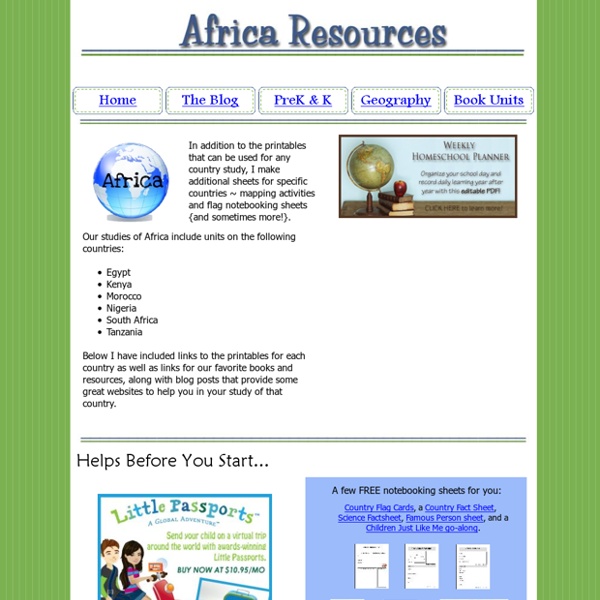Africa Lesson Plans and Resources

Teachers Homepage - National Geographic Education
This website would like to remind you: Your browser (Firefox 17) is out of date. Update your browser for more security, comfort and the best experience on this site. Educators! Take our survey for a chance to win a $50 Amazon gift card. Xpeditions is now archived in National Geographic Education's new website—natgeoed.org If you liked Xpeditions, you'll love the new media-rich natgeoed.org. www.natgeoed.org Please note: to search for Xpeditions content, check the “include archive” filter. National Geographic Education Twitter Facebook Google+ Email Quiz Connection! Most Popular Latest Videos Giant Traveling Maps Get great resources for introducing geography and map-reading skills to students in Grades K-8.
Related:
Related:



